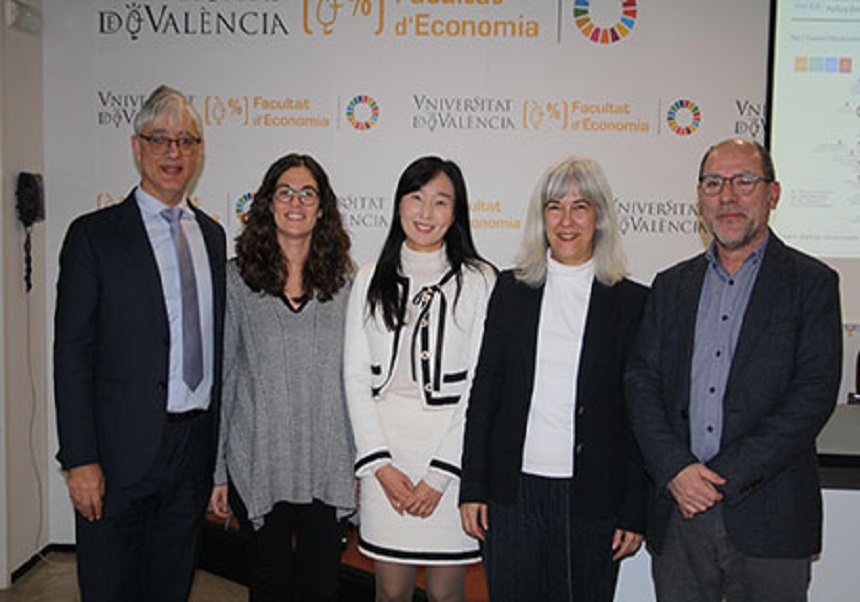
The Korean researcher Jiae Seo, from the official PhD programme in Social Economy of IUDESCOOP-Universitat de València, defended her international doctoral thesis at the Faculty of Economics of the UV on 10 January. The research, entitled ‘Public Policies for the Promotion of Social Economy in South Korea: Evolution of Public Policies, Political Entrepreneurial Influence and Evaluation Tool’, was directed by Dr. Rafael Chaves Ávila, Professor of Applied Economics at the University of Valencia and President of the Scientific Commission of CIRIEC-Spain.
The public defence was held before a panel chaired by Carmen Marcuello Servós, from the University of Zaragoza; whose secretary was Teresa Savall Morera, from the University of Valencia, and Eric Bidet, from the University of Le Mans (France), as a member.
The doctoral thesis is composed of a compendium of three articles written by the author. The thesis revolves around the main theme of Public Policies for the Promotion of the Social Economy (SE) in South Korea, and to address this topic, it covered the public policy process with three specific objectives.
The first objective was to examine the paradigm shift in SE public policy in the Republic of Korea. Specifically, the thesis delves into the changes and developments that have taken place in the field of Korean HE public policy, exploring its development and growth. According to the thesis author, by employing qualitative analysis methods, the study comprehensively evaluates 1,036 public policy measures covering various types of HE organisations.
The second objective focuses on the influential role of Social Economy entrepreneurs in shaping SE public policy in South Korea. Specifically, it seeks to examine the presence and impact of these entrepreneurs by analysing 423 news articles from 18 different media outlets over two decades.
Finally, the third objective seeks to provide a comprehensive analysis of the Social Economy Business Survey Index (S-BSI) as an advanced tool for public policy making and evaluation in the SE sector. Specifically, it focuses on investigating its development, its unique characteristics compared to other similar tools and its function.
As Seo describes, the results obtained confirm that in the last two decades, Korea's HE public policies have undergone a substantial transformation from less developed initial approaches to more comprehensive, so-called second-generation approaches.
Moreover, social economy entrepreneurs played a key role in attracting the interest of national and local policy makers, actively contributing to the design and implementation of HE policies at both central and local levels. The visibility of entrepreneurs in media coverage has fluctuated in response to evolving SE policy agendas.
Finally, the analysis confirmed that the S-BSI is not a complete tool, but has the potential to play a key role as a supplementary and advanced tool for HE policy formulation and evaluation.
The thesis can be consulted at the Roderic repository of the Universitat de València: here





